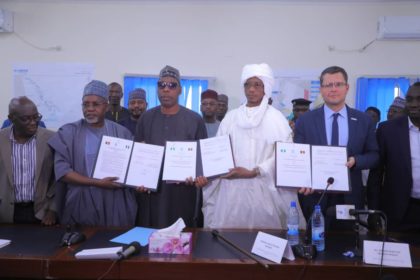By Adeyemi Adekunle
The Federal Government of Nigeria has joined forces with the World Bank to unveil the Rural Emergency Service and Maternal Transportation (RESMAT) initiative, set to commence in January 2025.
This ambitious program is poised to transform the landscape of maternal healthcare in Nigeria’s rural regions, aiming to save the lives of 1.7 million pregnant women and infants at risk of maternal mortality.
The RESMAT initiative seeks to address the alarming maternal and infant mortality rates that plague Nigeria, particularly in rural areas where access to timely medical services and transportation is severely limited.
With an emphasis on immediate and reliable emergency medical services, this program will roll out in 15 states identified as high-risk zones due to their elevated mortality statistics.
A critical component of RESMAT is the provision of ambulances that will ensure prompt access to healthcare facilities for expectant mothers and their children.
Health experts have long highlighted the desperate need for such services, citing that geography and poor infrastructure significantly hinder maternal healthcare in these underserved areas. By facilitating swift medical responses, the initiative aims not only to reduce dangerous delays in receiving care but also to foster better health outcomes for mothers and their newborns.
In a statement, a government spokesperson emphasized the initiative’s urgency, asserting that the protection of maternal health is a national priority. “Every maternal death is a tragedy that echoes through families and communities,” they stated.
“With RESMAT, we are committed to reversing this trend and ensuring that no woman should die while bringing life into the world.”
As the program gears up for its launch, stakeholders from various sectors express cautious optimism. They anticipate a significant impact not only on maternal health outcomes but also on broader public health systems in Nigeria, setting a precedent for future collaborative efforts aimed at addressing critical health challenges across the nation.




